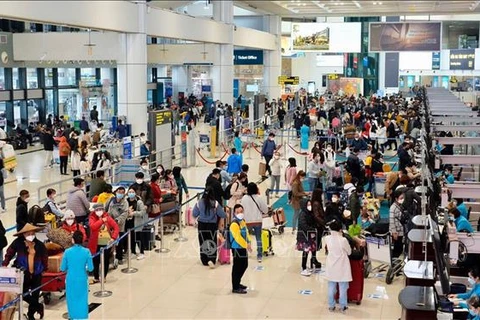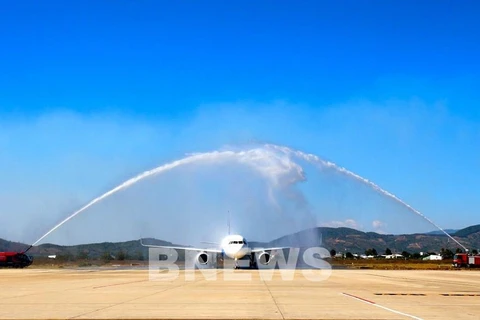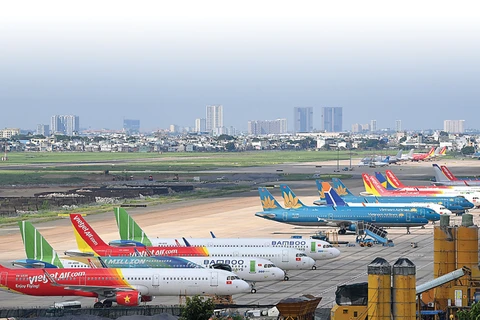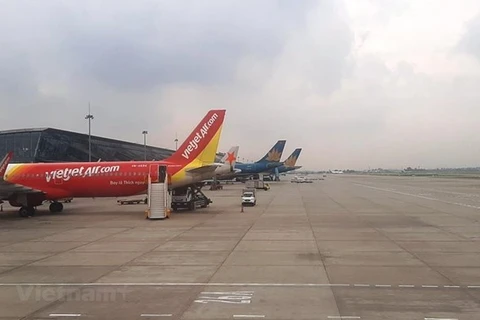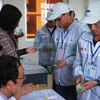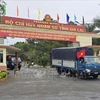Hanoi (VNA) - The Civil Aviation Authority of Vietnam (CAAV) has released its plan to implement biometric authentication (facial recognition) at airports’ check-in desks.
The high-tech move aims to contribute to ensuring social order and security, reduce time for check-in procedures, and thus increase accuracy. Facial recognition technology can also improve the prevention and detection of passengers using fake documents, and detecting those who are banned from flying or wanted criminals that cross borders.
In the first quarter of 2023, the facial recognition technology will be piloted at airports, and the implementation results have to be reported to the Ministry of Transport.
Previously, in October 2022, the CAAV had a meeting with Airports Corporation of Vietnam (ACV), Noi Bai International Airport, Vietnamese airlines and ground service companies, and the Ministry of Public Security’s National Population Data Centre on the use of chip-based citizen identification cards for check-in on some domestic flights in six months before making a decision for official application./.
The high-tech move aims to contribute to ensuring social order and security, reduce time for check-in procedures, and thus increase accuracy. Facial recognition technology can also improve the prevention and detection of passengers using fake documents, and detecting those who are banned from flying or wanted criminals that cross borders.
In the first quarter of 2023, the facial recognition technology will be piloted at airports, and the implementation results have to be reported to the Ministry of Transport.
Previously, in October 2022, the CAAV had a meeting with Airports Corporation of Vietnam (ACV), Noi Bai International Airport, Vietnamese airlines and ground service companies, and the Ministry of Public Security’s National Population Data Centre on the use of chip-based citizen identification cards for check-in on some domestic flights in six months before making a decision for official application./.
VNA

